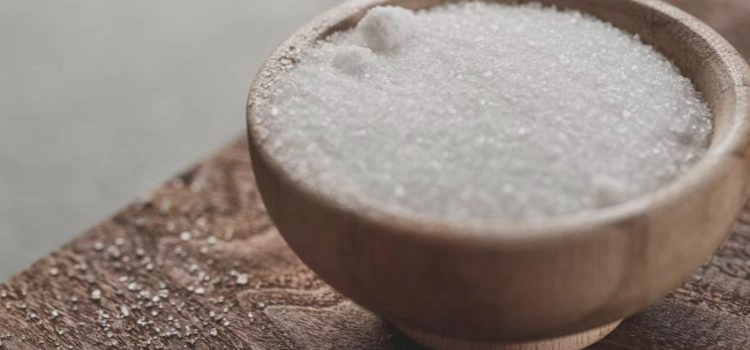What if something as simple as salt could become the next frontier in pharmaceutical innovation? How can a traditional mineral transform into a sophisticated medical delivery system? Why would one of Turkey's largest salt producers venture into the highly regulated pharmaceutical industry? These questions lie at the heart of a groundbreaking development that's set to reshape both the salt industry and pharmaceutical manufacturing.
The Pharmaceutical Salt Revolution: Beyond Seasoning
Salt, known scientifically as sodium chloride, has been a fundamental part of human civilization for millennia. From food preservation to seasoning, its uses have been largely culinary and industrial. However, recent technological advancements have unlocked its potential as a sophisticated pharmaceutical vehicle. Turkish salt producer Koyuncu Salt is pioneering this transformation by announcing plans to manufacture salts containing active pharmaceutical ingredients (APIs), marking a significant leap from traditional salt production to advanced medical applications.
This innovation represents more than just a product diversification—it's a complete reimagining of salt's role in modern medicine. Pharmaceutical-grade salts can serve as effective delivery mechanisms for medications, offering improved bioavailability, controlled release, and enhanced stability for sensitive compounds. The company's investment in this technology signals a recognition of salt's untapped potential beyond its conventional uses.
Real-world application: Consider patients who struggle with swallowing pills or require precise medication dosing. Pharmaceutical salts could be incorporated into edible films, dissolvable strips, or even customized seasoning blends that deliver medication through everyday foods. This approach could revolutionize how we administer treatments for chronic conditions, making medication adherence simpler and more intuitive.
The Science Behind Medicinal Salts: Technical Breakthroughs
Molecular Integration Technology
The core innovation lies in the ability to integrate active pharmaceutical ingredients at the molecular level with salt crystals. This process requires sophisticated technology that maintains the stability and efficacy of the API while ensuring uniform distribution throughout the salt matrix. Koyuncu Salt's research and development team has developed proprietary methods for this integration, overcoming significant technical challenges related to particle size distribution, dissolution rates, and shelf-life stability.
Quality Control and Standardization
Producing pharmaceutical-grade salts demands unprecedented quality control measures. Unlike food-grade salt, which allows for certain impurities within regulated limits, pharmaceutical salts must meet purity standards exceeding 99.9%. The manufacturing process involves multiple purification stages, micronization techniques, and rigorous testing protocols to ensure batch-to-b consistency. Each production lot undergoes thorough analysis for API concentration, dissolution characteristics, and potential contaminants.
Practical example: In the development of antihypertensive medications, salt-based delivery systems could provide more consistent blood levels of the active ingredient compared to conventional tablets. The gradual dissolution of salt crystals in the digestive system could maintain therapeutic concentrations over extended periods, reducing peak-trough variations that often cause side effects or reduced efficacy.
Market Implications and Industry Disruption
The entry of a traditional salt producer into the pharmaceutical arena represents a significant disruption to both industries. For the salt sector, it demonstrates how commodity products can be transformed into high-value specialty chemicals through innovation and technological advancement. For the pharmaceutical industry, it introduces a new category of excipients and delivery mechanisms that could potentially reduce manufacturing costs while improving patient outcomes.
Koyuncu Salt's strategic positioning allows them to leverage their existing mining infrastructure, purification expertise, and distribution networks while adding substantial value through pharmaceutical applications. This vertical integration model could establish a new benchmark for how traditional industries can innovate and capture value in adjacent markets.
Market application: The global pharmaceutical excipients market, valued at approximately $8.6 billion in 2022, represents a substantial opportunity for salt-based products. As drug manufacturers seek more efficient and patient-friendly delivery systems, pharmaceutical salts could capture a significant market share, particularly in generic medications where differentiation through improved delivery mechanisms provides competitive advantage.
Regulatory Landscape and Compliance Challenges
Pharmaceutical Certification Process
Transitioning from food-grade to pharmaceutical-grade production requires navigating complex regulatory frameworks. Koyuncu Salt must comply with Good Manufacturing Practice (GMP) regulations, obtain necessary certifications from health authorities including Turkey's Ministry of Health and potentially the FDA for international markets, and establish comprehensive documentation systems covering every aspect of production from raw material sourcing to final product distribution.
International Standards Alignment
The company faces the challenge of aligning its processes with multiple international standards simultaneously. Pharmaceutical regulations vary significantly across markets, requiring adaptable manufacturing systems and quality assurance protocols. Additionally, the novel nature of API-infused salts means regulatory agencies may require extensive clinical data to demonstrate safety, efficacy, and equivalence to existing delivery methods.
Real-world consideration: The first pharmaceutical salt products will likely target markets with established regulatory pathways for novel excipients, followed by expansion as clinical evidence accumulates. Initial applications might focus on over-the-counter medications or nutraceuticals before progressing to prescription drugs, allowing for gradual regulatory acceptance.
Future Applications and Expansion Possibilities
The potential applications for pharmaceutical salts extend far beyond current imagination. As the technology matures, we might see customized salt formulations for specific patient populations, combination products delivering multiple medications simultaneously, or even smart salts that respond to physiological conditions to optimize drug release.
Geographic expansion represents another significant opportunity. Turkey's strategic position between Europe and Asia, combined with Koyuncu Salt's existing export infrastructure, positions the company to supply pharmaceutical salts to emerging markets where access to affordable medications remains challenging. The relatively lower production costs compared to traditional pharmaceutical manufacturing could make essential medicines more accessible in developing regions.
Practical future scenario: Imagine diabetic patients using specially formulated salt that helps regulate insulin levels, or elderly individuals receiving their daily medications through seasoned foods without altering taste or texture. These applications could significantly improve quality of life for patients who struggle with conventional medication forms.
Challenges and Considerations for Widespread Adoption
Technical Hurdles
Despite the promising outlook, several challenges must be addressed for pharmaceutical salts to achieve widespread adoption. Compatibility issues between certain APIs and salt matrices, stability concerns under varying environmental conditions, and precise dosing accuracy present ongoing technical challenges that require continuous research and development investment.
Market Acceptance and Education
Healthcare professionals and patients must understand and trust this new delivery mechanism. Educational initiatives will be crucial to demonstrate the safety, efficacy, and advantages of salt-based medication delivery. Prescribers need clear guidance on appropriate use cases, dosing equivalencies, and potential interactions with dietary salt intake.
Real-world implementation challenge: Patients with sodium-restricted diets might require alternative formulations, necessitating the development of potassium-based or other mineral salt options. This complexity underscores the need for diverse product development and careful patient selection criteria.






